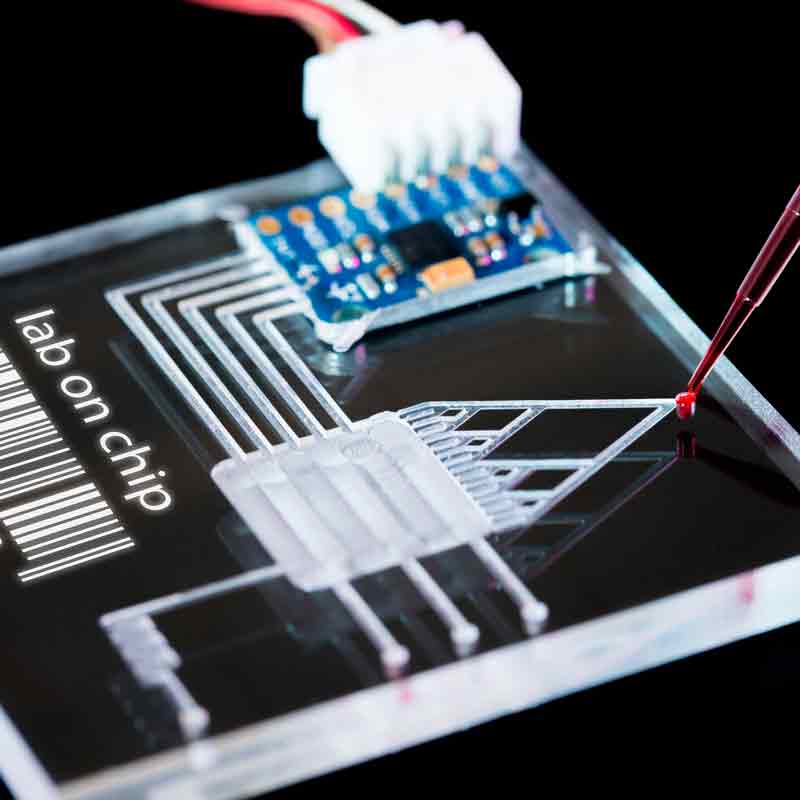Recent Post

Magnets in Restaurant Kitchens

Global supply challenges and HYAB’s role

Electromagnets – a more controllable magnet

Magnetic filtration in the process industry

Sheet metal handling – Easier with magnets
Magnets and Advanced Technology: Microfluidics and Lab-on-a-Chip Applications
Published: 2023-05-11 16:34:50 • Daniel Gårdefelt
Microfluidics and lab-on-a-chip applications are changing and improving rapidly, and magnets are a big part of how new materials and technologies are made. By placing lab processes on a single chip and making them smaller, these systems offer innovative solutions for a wide range of applications. In this article we will look at what magnets have to do with these changes.
Magnets in systems with liquids
Liquids in microfluidic systems are often measured in microliters or nanoliters. These systems can control and move very small amounts of liquid. Magnets are important parts of these systems:
1. Magnetic actuation: Small magnetic particles in a liquid can be moved around using a magnetic field to do things like mixing, pumping or sorting.
2. Magnetic beads: Magnetic beads are often used in bioassays with microfluidic systems to separate cells, purify proteins and separate DNA. Magnets make it easy to check and remove them, making these processes go faster.
Magnets in Lab-on-a-Chip applications miniaturize laboratory functions on a single chip, enabling faster, cheaper and more portable solutions:
1. Magnetic biochips: These biochips use magnetic fields to move biological particles such as cells or DNA. This enables precise control and measurement, making bioassays more accurate and reliable.
2. Magnetic sensors: Integrated magnetic sensors can provide real-time feedback and control, making lab-on-a-chip applications work better.
As research and development continues, it is likely that the way magnets can be used in microfluidic systems and lab-on-a-chip will grow:
1. Advanced diagnostics: Magnetic lab-on-a-chip systems can be used to make more advanced diagnostic tools.
2. Personalized medicine: These technologies can also help develop personalized medicine, which means that treatments can be tailored to fit the biological markers of each patient.
Conclusion
Magnets are a very important part of making advanced materials for microfluidic systems and lab-on-a-chip. From magnetic actuation to magnetic biochips, these technologies pave the way for new solutions in areas such as diagnostics and personalized medicine. This changes the way we think about healthcare and scientific research.


